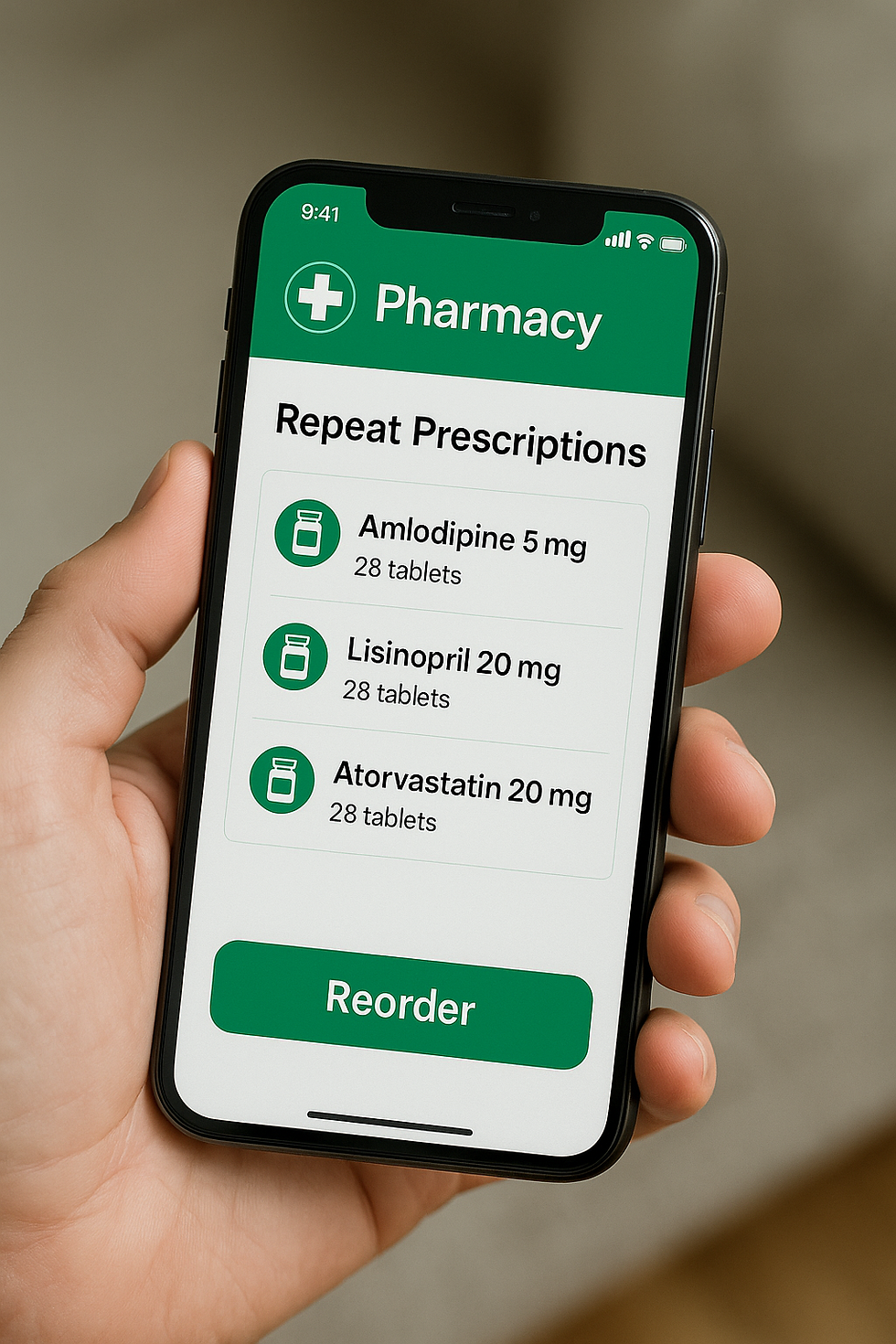Online Pharmacies: Convenient, or Unsafe? A Personal Reflection from the Frontlines of Digital Pharmacy
- Kyle

- Apr 30, 2025
- 3 min read
The rise of Distance Selling Pharmacies (DSPs) has transformed the way patients access medicines in the UK. During the COVID-19 pandemic, these services provided a lifeline, especially for those shielding, isolating, or simply unable to access a local pharmacy. But as their popularity grows, so does the debate: are online pharmacies a convenient evolution, or are they undermining patient safety?

🧪 My Experience at the Cutting Edge
I started my digital career working at Well Digital Pharmacy, part of a forward-thinking, highly skilled team building one of the most innovative pharmacy services in the country. It was exciting, fast-paced, and full of breakthroughs. It felt like we were making huge strides every single day and in many ways, we were.
But sometimes I ask myself: was I letting the excitement cloud my clinical judgement?
Looking back honestly, I don’t think so. Why? Because the service we offered was supply-only. We dispensed repeat EPS prescriptions issued by GPs, not acute or newly prescribed treatments. The clinical responsibility for the appropriateness of therapy always rested with the prescriber. Our role was to ensure safe and accurate supply, not to make clinical decisions.
Where I’ve seen things become more questionable is in online prescribing, services that bypass face-to-face assessments and prescribe medications based solely on online forms or quick questionnaires.
👀 A Broader Perspective from Hospital Practice
Now that I’ve spent several years in hospital pharmacy, where clinical judgement is front and centre every day, I can see why there are concerns about DSPs from within the wider healthcare system. Having a much broader clinical perspective now than I did back then, I understand the fears about fragmented care, lack of face-to-face contact, and inadequate clinical oversight.
But I also believe it’s important to be proportionate. The clinical risk in DSPs is relatively low, precisely because the clinical decisions are minimal. These services are almost exclusively focused on repeat prescription supply, not on initiating or adjusting treatments.
The more tangible clinical risks lie in patients not receiving their medicines on time, or delays to treatment, but even these are largely predictable and manageable, with robust processes, tracking systems, and patient communication.
⚠️ The Risks of Convenience
Regulators like the General Pharmaceutical Council (GPhC) and organisations such as the Royal Pharmaceutical Society (RPS) have issued growing concerns:
Unsafe prescribing practices: The GPhC found instances of high-risk medicines being supplied without adequate checks. In response, they’ve strengthened guidelines, requiring better verification and more rigorous safety processes for online services.
Access by minors: Investigations uncovered cases where underage patients could access prescription medications online due to poor age verification.
Lack of shared records: Without access to GP records or communication with other healthcare providers, prescribing decisions may be made without full clinical context.
⚠️ From Digital Hype to Cautionary Tale
The downfall of Babylon Health serves as a cautionary tale. Once a flagship digital health startup, it promised AI-driven triage and remote prescribing, but ultimately collapsed after questions around clinical safety, poor integration with NHS systems, and unsustainable practices. This example reminds us that innovation without governance can carry real risks to patients.
✅ When DSPs Work Well
Despite these concerns, I firmly believe DSPs have an important role to play, when done right. For repeat prescriptions, particularly for patients with long-term conditions, DSPs can:
Improve medication adherence
Offer unmatched convenience
Reduce pressure on physical pharmacies
Support those with mobility or access issues
With the right clinical boundaries, robust governance, and regulatory oversight, online pharmacies can absolutely enhance patient care.
💬 What Do You Think?
This is a fast-moving area. As someone who helped build one of the UK’s first large-scale digital pharmacies, I’ve seen the good first-hand. But I’ve also watched with concern as new players entered the market without the same safeguards or sense of clinical responsibility.
So I’ll end with this: What do you think?
Are online pharmacies improving access and modernising healthcare, or are they opening the door to unsafe practices?




Comments